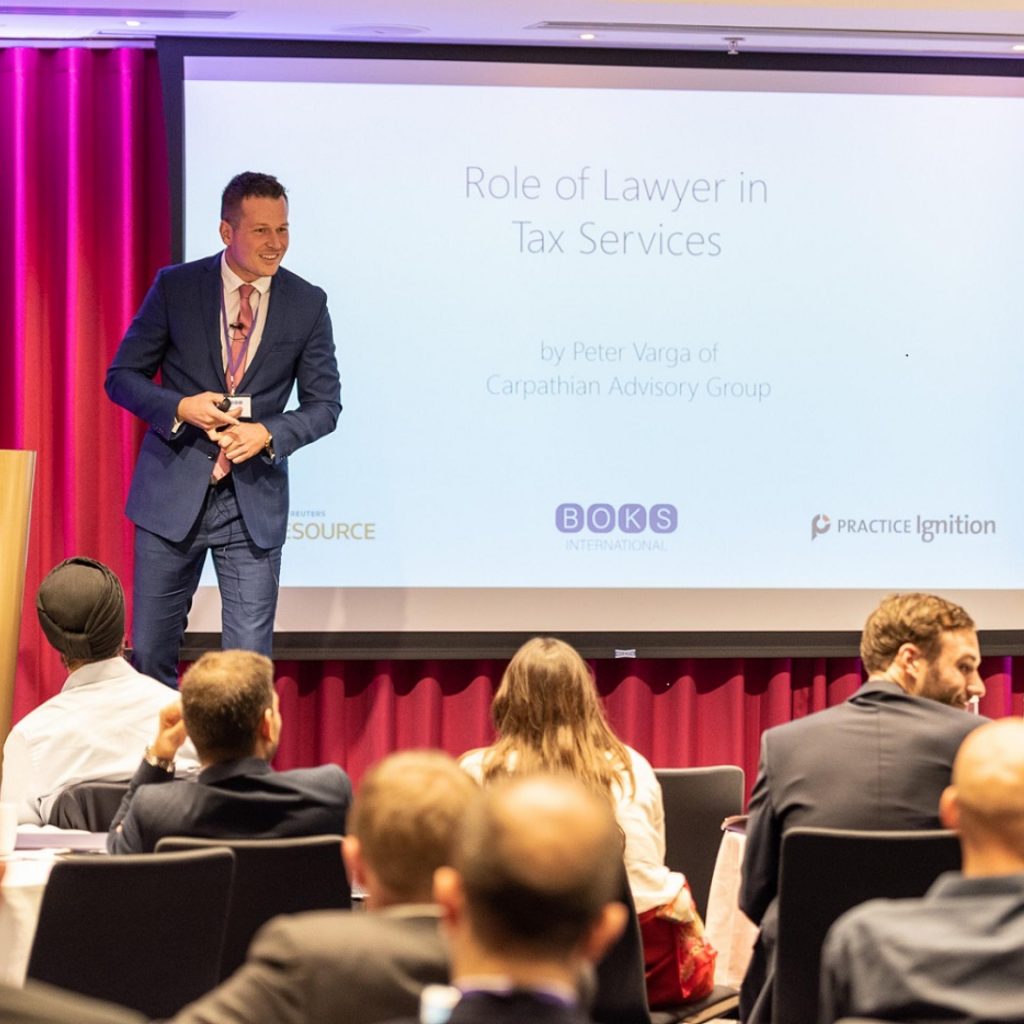
“There is nothing scary about everyone arranging their business to pay as little tax as possible. No one is obliged to pay more to the state than the law requires. It is hypocritical to demand more taxes in the name of morality”,
stated one of America’s most famous judges, Learned Hand, in Commissioner of Internal Revenue v. Newman (1947).
I think that the Panama Papers or the Paradise Papers may have caused more hysteria in Slovakia than legitimate anger.
Having a company abroad is not in itself criminal or even immoral.
There are several reasons for using a shell company, other than tax reasons.
Anonymity, for example.
I have several clients who do not want to be seen.
With one client, employees demanded higher wages en masse just because they saw his profits and book value of assets on finstate.sk.
It used to be that anonymity also protected entrepreneurs from the mafia.
Someone might want a more prestigious address.
Trying to get into a country with lighter regulation (for example, when setting up a venture capital fund) is also a legitimate reason.
And even if there was only a tax motive, that might not automatically be a problem. Even a well-known Slovak IT company was recently sold through a foreign shell company owned by a Slovak owner. Why did the owner set up a mailbox company? I assume that the primary reason was an attempt to avoid tax on the profit from the sale of a stake in a Slovak company, which is still payable here. Paying 25% tax and 14% health levy on EXIT is probably really unreasonable.
It is rumoured that Richard Sulík sought out Ivan Miklos, then Minister of Finance, a year ago in 2004 to place his thesis on the flat tax in his hands.
Ivan Mikloš allegedly did not throw it away and it is said to have become the idea for a major tax reform, which introduced a flat 19% tax.
In addition to reducing the tax rate, the tax reform brought, above all, many simplifications.
It abolished a number of exemptions and removed a number of unnecessary technicalities.
Today, even because of various trivialities such as
13.
and 14th salaries, the income tax law has 3 times more words than it had thanks to the “Mikloš-Sulík reform”.
At a recent conference on tax optimization for IT companies, I gave a lecture on the possibilities for tax and levy optimization that Slovak law offers thanks to this departure from tax simplicity. For example, did you know that a software company in Slovakia can in some cases literally pay no taxes at all on income from the use of software? As of 2021, companies with a qualifying interest in another Slovak company will not pay tax on the sale of shares. It will no longer be necessary to travel to Vienna and set up a shell company there.
Yes, Slovakia can be a tax haven too.
In the so-called.
patent box or super deduction (which can also be used by IT companies), ignorance about the possibilities of their use is a frequent problem.
This may also be why software companies do not properly account for the development of their computer programs.
This unnecessarily disqualifies them from taking advantage of this benefit.
And it is not only about accounting, but also about setting up legal and business relationships with their customers, or employees or contractors (persons working for the company through a trade or Ltd.).
I recently had a client open two financial years back to back with their accountant thanks to our recommendations.
Absolutely legal and legitimate, he saved tens of thousands of euros without high transaction costs (e.g. for the administration associated with it).
Several institutes, the setup of which can bring significant tax savings, can also be used by companies whose primary focus is not IT.
As Slovak tax and levy laws are fragmented (i.e. they contain too many words, which leads to their incoherence), they intentionally and unintentionally provide a number of ways in which not only IT companies can pay less in taxes and levies.
It is important to understand that IT business is not limited to one country.
Foreign clients create a new space for Slovak companies and questions for more effective taxation.
Can I set up a company in Singapore or Hong Kong?
How much will it cost and how much will I possibly save?
Yes, these options exist for IT companies and can be extremely effective.
In Lithuania alone, for example, taxation on software revenue is now 5%.
Both Hong Kong and the UAE tax nothing at all and are not necessarily viewed negatively.
By default, however, any institutionalisation of doing business abroad brings administrative pitfalls, especially for the sake of banks or other payment institutions.
This is also why software companies do not primarily need to look for solutions outside Slovakia if Slovakia also offers interesting opportunities for tax optimization.
We all know to some extent that legal tax optimisation has its limits. In my legal practice as a tax lawyer, I have been trying for several years to define and, if possible, to define those limits. Economic life is extremely diverse and, as I write in this blog on the KTAG case of Andrej Kiska, that boundary cannot, unfortunately, always be reliably identified. One way or another, taxes and levies are a cost like any other and, just as when an owner saves, for example, on employee training costs, this measure can have both positive and negative consequences. It is the same with taxes. You need to get rid of those taxes and levies that you don’t necessarily have to pay. If you are interested in this topic, feel free to get in touch.
Law & Tax
Tomas Demo
tomas.demo@highgate.sk
Accounting
Peter Šopinec
peter.sopinec@highgate.sk
Crypto
Peter Varga
peter.varga@highgate.sk